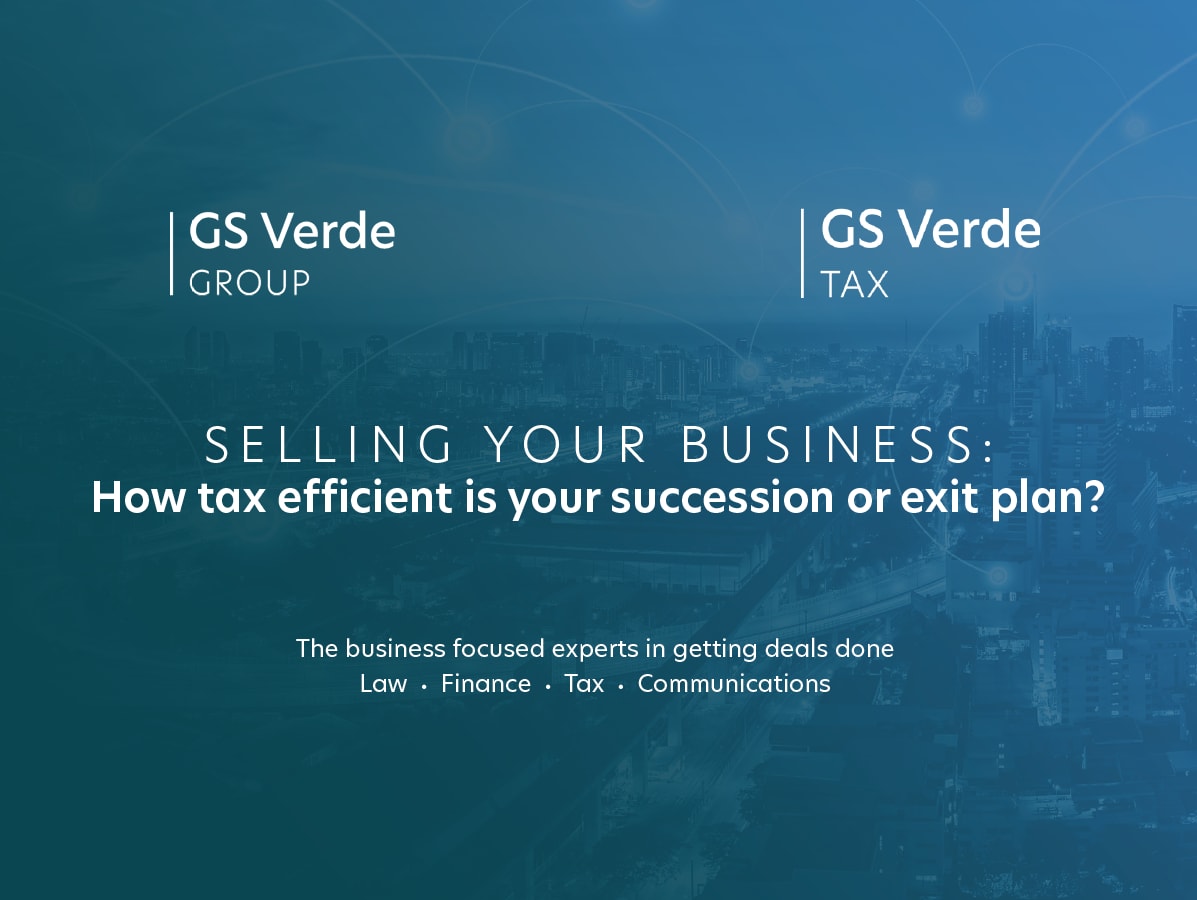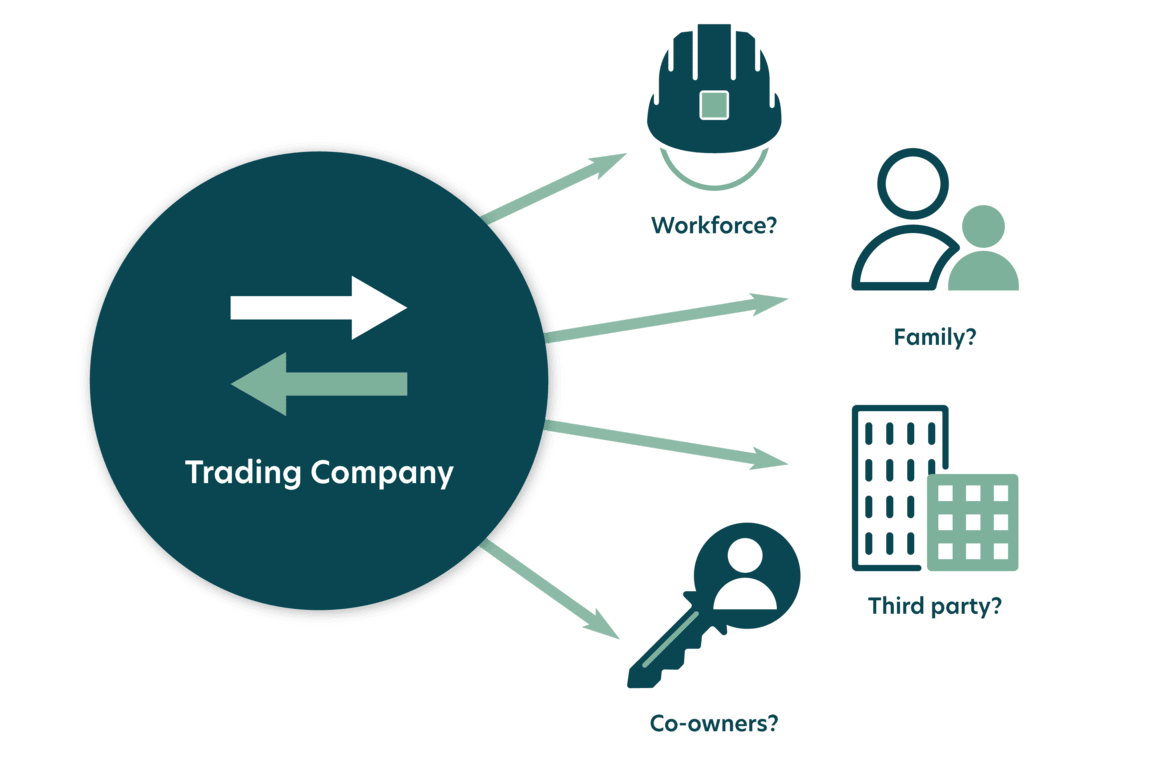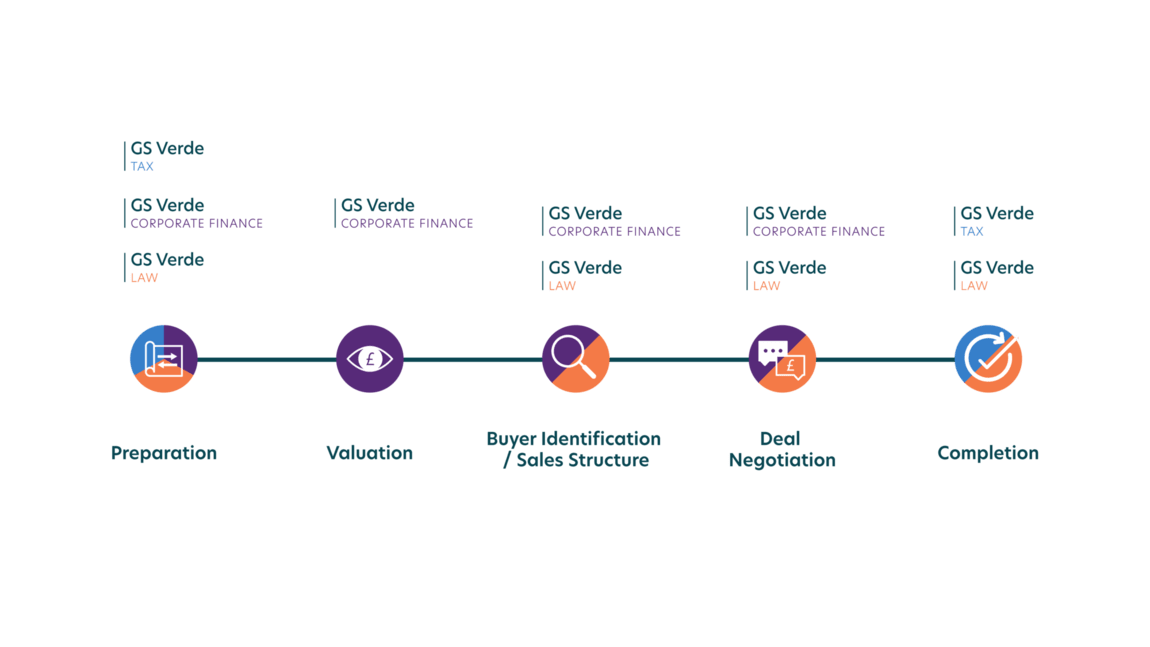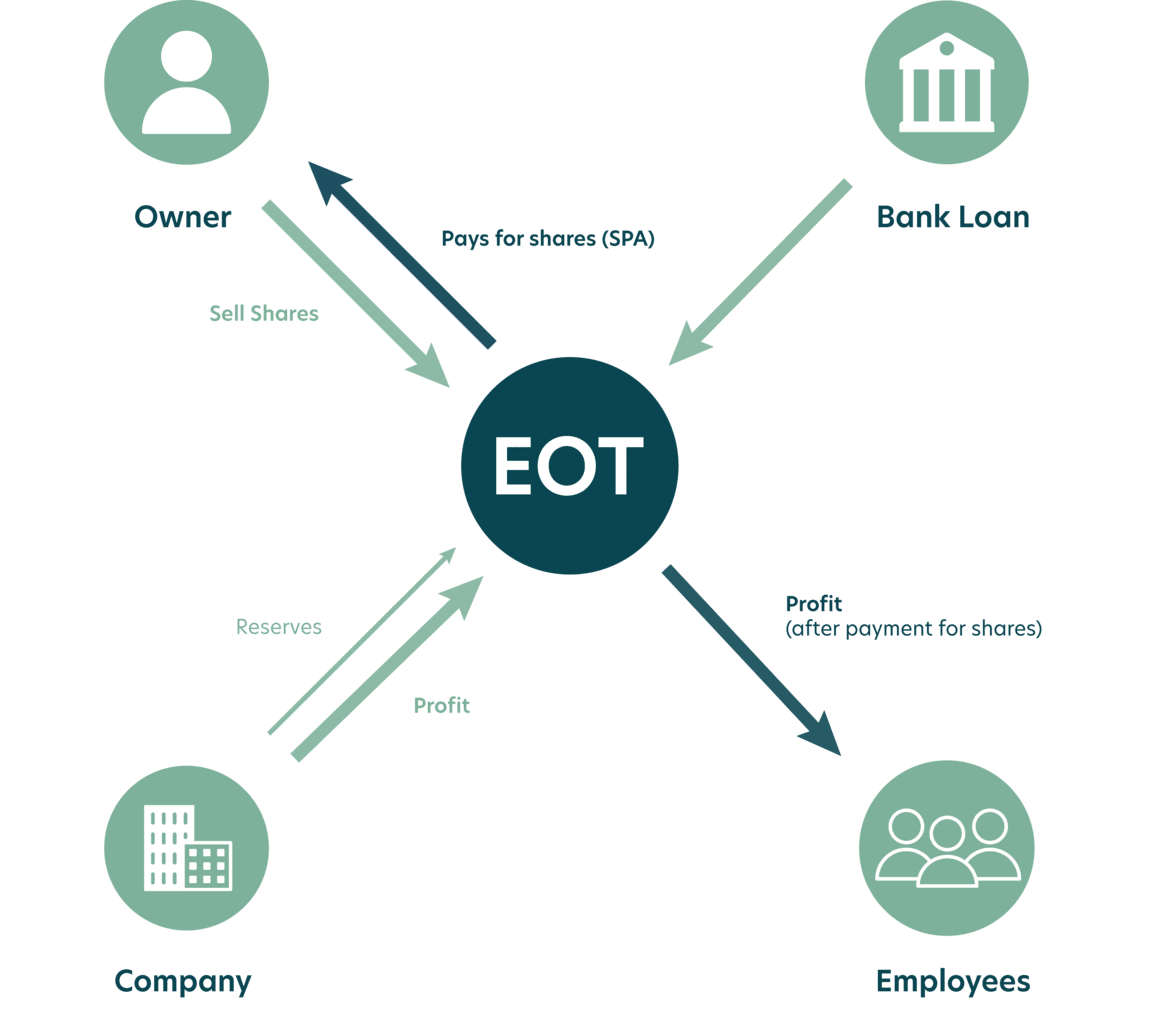Selling your business: How tax efficient is your succession or exit plan?

posted 20th April 2023
Is your business exit plan tax efficient?
The sale of a business will have various tax implications. Exactly how your personal tax situation will be affected, what type of tax you must pay, and if you are entitled to any reliefs, will depend on various factors.
The structure of your business, or the group of companies that you own, will dictate the type of tax payment that is required, and the overall amount of tax owed when you sell your business could also be reduced by a relief scheme and the type of sale itself. The tax implications of selling a business are rarely straightforward, and there should be tax planning considerations in place ahead of any disposal transaction to help limit any potential tax liabilities.
The importance of forward planning
All business owners must consider the future of their business and what their aspirations are. Do you aim to retire early? Leave a family legacy? Sell the business within the sector? Reward your employees? Partially exit now with a plan for a full exit in the future?
A business exit plan is crucial and could make all the difference to the overall business success, as well as your long-term future finances. No matter how you intend to handle your business exit, a robust exit strategy will also ensure a smooth transition for other stakeholders; offering reassurance for clients or stability for employees.

Questions to ask yourself when thinking about when considering selling your business and your succession plans:
- Are you passing your business to your children, a family member, or to a family trust?
- Will you sell your share in the business to your co-owners or partners?
- Are you selling your business to some or all of the workforce?
- Do you want to sell the business to a third party?
- Will there be public flotation or sale to a public company?
- How will you wind things up?
- Can you minimise your tax liability?
- What will you do when you no longer own the business?
Selling the business
If your business has a market value, or if you are looking to receive immediate remuneration for your shares and assets upon sale, it is vital to start planning ahead. Even more so if you plan to realise the value of your business within a few years.
Selling a business, no matter what the size, is a significant personal decision that has varying expectations for everyone, but there are several aspects to consider if you want to maximise the net profits from the sale.
- The timing of the sale
- The true market value of your business
- How to increase the value of your business if necessary
- The prospective purchasers and how to find them
- The opportunities for reducing the tax due following a sale
- What advisors will you need to handle the various elements of the sale
Maximising the sale value
Prospective buyers for your business will require several pieces of information to assess the viability of a successful and worthwhile purchase. You should be prepared to provide the current management accounts and forecasts for the next 12+ months.
Any buyer will want to know how the profits of the business might be trending. Are profits on the increase on in decline? Are profits dependent on a single client only? Have the profits been managed correctly? The historical trend of the business profits will have a direct effect on the value attributable to the business; a rising profitability trend should result in a higher valuation.
This means that it is most important to plan for profitability in the years directly leading up to a sale.
Determining the value of your business shouldn’t be left to guesswork. There are several methods of valuing a business, but obtaining a professional valuation from an experienced advisory firm will put you on solid ground; advising on areas that can be capitalised on, any points that can be improved, or forecasting from current trends in order to maximise the valuation figure.

When is the best time to sell?
There are several factors to contend with when planning the timeframe of the sale. Factors that could influence potential buyers as well as your own personal circumstances.
- When are you planning to retire?
- Does your business have an heir apparent?
- Will your income stream and wealth be adequate post-sale?
Other questions to ask about your business and the industry:
- What are the current trends in the stock market?
- To what extent is your business ‘trendy’ or at the leading edge?
- Is your business forecasting increases to the top and bottom lines?
- How well is your business performing when compared to similar businesses?
- Is your business running at, or near, its full potential?
How much tax will I pay when selling a business?
The complexities of selling a business cannot be overstated, even more so with regard to the tax position. Seeking a suitable advisor ahead of the sale will provide more options in aligning your assets and holdings in a structure that allows for the most tax-efficient sale. Professional experience in creating these efficiencies should be sought to ensure the most successful outcome and adhere to the requirements.
The sale of any business inevitably has various tax implications. Exactly how your tax situation will be affected will depend on various factors, including how much a seller or shareholder will receive from the sale. The structure of the business will also determine what type of tax is owed, and the type of sale could also be eligible for certain tax relief schemes, reducing the overall amount of tax due.
What type of business sale offers relief against tax?
Employee Ownership is a type of business sale that has many benefits for both the seller and the employees of a business. Viewed favourably by the government, selling a business to employees is incentivised through the relief of capital gains tax against the sale of shares to employees.
To qualify for this relief, the majority of business shares (at least 51%) must be sold to all employees equally. Commonly, an Employee Ownership Trust (EOT) is set up to hold and manage these shares on behalf of the employees, ensuring fair and equal membership for them all.
As well as the potential tax benefits (no CGT for the seller and income-tax-free bonuses for employees), Employee Ownership is a business model that delivers enhanced employee engagement, greater loyalty, and meaningful rewards for employees. There is also evidence that employee-owned businesses see better productivity and even improvements in financial performance.
Employee Ownership will not be the right fit for every business, but if you truly value employee engagement, it is an option worth considering if you are seeking a tax-efficient sale.
What are Capital Gains Tax (CGT) rates?
Capital Gains Tax is applicable to the profit you are due to make when you are selling assets. Self-employed and sole traders, as well as people in business partnerships, pay Capital Gains Tax, which is at different rates to income tax.
Limited companies do not usually pay capital gains tax, but they must pay corporation tax against the gains.
There are many common assets that can be subject to Capital Gains Tax when they are disposed of, such as shares, bonds, and property. Selling a business, either as a sole trader, partnership or shares in a company, could be subject to CGT.
Do you pay tax when you sell a limited company?
If you operate your business through a Limited company, the type of tax due will depend on if the shares of the company are being sold or just the trade and assets. If you sell your shares, then this generally will be taxed as a capital gain on the shareholder. If the company sells the trade and assets then this will be a capital gain in the hands of the company and will be taxed at the corporation tax rate relevant at the time, and you will then be taxed personally on taking the money out of the company.
Calculate the gain
As with any other assets, the basics of working out the gains are the same for selling a business. The gain is calculated by taking the proceeds from the sale of the asset and deducting the cost of the initial purchase. You can also deduct any costs associated with the sale and purchase such as legal fees. These basic principles apply whether you are selling a business as a sole trader, a partnership, or holding shares in a limited company.
However, in many cases, identifying the different elements of this can be complex and very few sales are straightforward. Selling your business may include deferred consideration, contingent elements, or consideration in a form other than cash. If you sell or gift the business below its value, there may be implications for doing this too.
The presence of any tax reliefs could minimise your Capital Gains Tax liability, but add further complexities as they necessitate specific rules and additional criteria to fulfil.
How to Reduce Capital Gains Tax When Selling a Business
It is always important to plan any business sale in advance to ensure that you take advantage of the reliefs available and can structure the sale in the most tax-efficient way. In addition to this, you will also want to ensure that you are able to maximise its likely sale value. Preparing early and seeking professional advice in advance will be essential to achieve this.
If you are considering selling a personal asset or all or part of your business, GS Verde Group can advise you of the tax planning opportunities available to you before you make the disposal to help mitigate or reduce potential tax liabilities.
Before selling your business, professional advice will be essential to:
- Get your business ready for sale and minimise the tax due
- Identify successors within the business
- Help explore suitable transaction types
- Find and target possible buyers
- Accurately value your business
- Optimally plan the sale and maximise the sale price
- Plan your transition to your next venture
For more information and guidance, visit our ‘Sell a business’ page, or learn more about the various types of business sale, like Management Buyouts, Employee Ownership, Trade Sale, and Private Equity too.
Contact GS Verde’s multidiscipline team to discuss your tax considerations, as well as the wider services needed to achieve a successful business sale from end to end.





